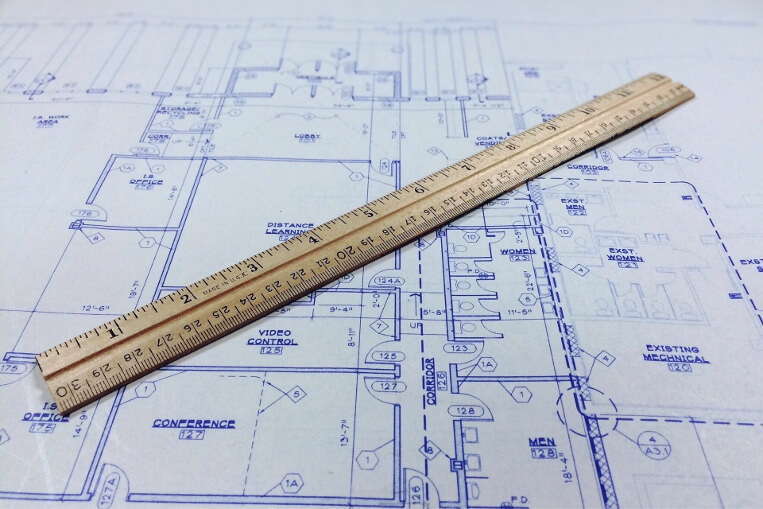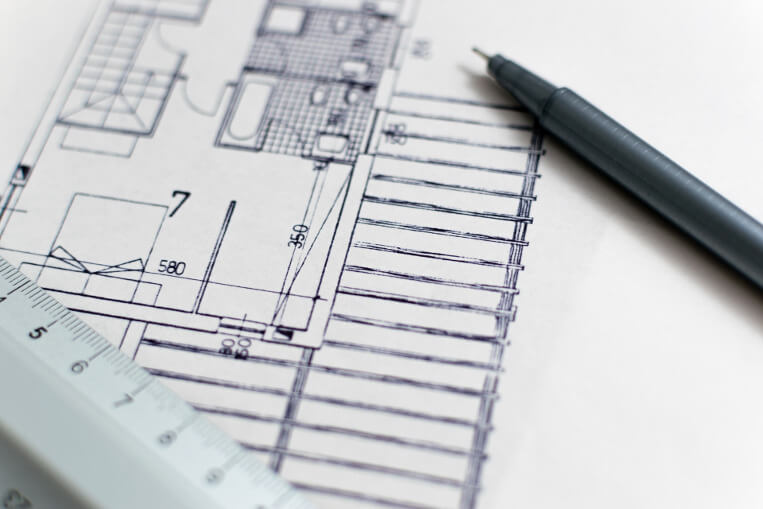Related Articles
Fresh thinking from 4,000 Creators and Innovators

How to be a great leader at any level

-ban.jpg?width=1920&height=800&mode=crop&format=webp&quality=60)
Architecture is a complex and creative industry. To succeed in starting and running your own business you need to be able to keep the whole picture front of mind and obsess about the detail.
Starting up on your own is a daunting task whether you’re new to the industry or an old timer. So, what advice do established architects give to newbies? Read on.
Business Matters, one of the UK’s leading magazines for small and medium-sized enterprises (SMEs) has some fantastic resources for people starting out running their own company. One of the first things they say is to believe in yourself.
“It is very, very hard to be successful in business without a large degree of honesty. Before you start, it is vital to have a good look at yourself, your ideas and your strengths, and work out what it is that you personally are best at doing.
Examine your offering from every angle and make sure you’re happy with your business plan because when you start, you will need enormous amounts of self-belief to convince others that your fledgling company is worth buying into and from.”
No matter how corny it might sound, it’s solid advice! If you don’t think your business is worthwhile, chances are nobody else will either.
Your fellow architects are fantastic resources. Once you find people who have skills and roles that you aspire to, you can begin to learn from what they do. These mentors will foster your development and be instrumental to your career advancement if you can connect with them in the right way. Why not offer to buy them a coffee in exchange for a quick chat, get your burning industry questions answered, and make useful contacts for the future.
It’s also important to keep up with others in the profession even after you’re more established, there’s always something to learn. Neil Marshall, Director of The Design Büro says “Your career is a learning journey, and it never stops. Soak up the knowledge of your peers at every available opportunity.”

Architecture is a service industry and your ability to provide exceptional service is dependent on a strong network. It will make your job easier and foster countless opportunities. Andrew Mikkael of Andrew Mikkael Architects compares networking to dating! Yes really.
"Client relations are just like dating. Build the body of work and image to attract your ideal client. Just because someone who doesn't appeal to you gives you a wink, doesn't mean you approach them. Same with prospective clients. Know who to say no to based on your own goals and values. No matter how desperate your immediate situation may be, spending time with the wrong client can be a time sink and will probably only get you like-minded work.”
When you begin it’s crucial to nail down exactly what your offering is, who your target market is and how to reach them. Think about the ideal projects for your firm? Who are the people who can lead you to them? How can you get in front of the right people?
The best projects or partnerships come about through direct commissions via a personal contact. Make the personal connection by networking in the same places that your ideal client spends time in. If you haven’t already, start thinking of everyone in your contacts as a potential client, collaborator, or lead to new information. As the famous expression goes ‘it’s not what, but who you know’ and it may just be that the person who leads you to your next project is someone you already know.

At the beginning of your career as an architect, you might not be given the most interesting or exciting projects and the same is true as you start up on your own. But everything you do is a chance to learn. If you take all your smaller projects as seriously as the bigger design opportunities, it could lead onto bigger things.
Neil Marshal recommends keeping track of your projects so you can look back and see how far you’ve come: “Keep a record of your achievements and photographs of completed work. You never know when you will need them either for yourself or your employer.”
Public speaking is an invaluable trait for an architect, and it doesn’t have to be on a big scale to win you clients and more work. If you have an important meeting, rehearse your presentation and get feedback from someone you trust (ideally a fellow architect) to make sure it’s as ready as can be.
Afterwards, ask your peers for a critique of your performance. Although it’s important to know the terms and expressions architects use and understand, avoid making it too complex or using ‘archispeak' when you are with clients. They’re unlikely to be impressed by your ability to incorporate words like bifurcate, but they will appreciate you speaking clearly!
If you need extra tips for speaking as an architect, there’s many to be found online, but we particularly like this one.

“I admit my sketching has fallen out of practice but it’s something I always strive to do more.” Says John Gresko, Senior Project Architect with HDR Architecture.
It’s one of your most fundamental skills and it’s important that no matter how advanced your career becomes, it’s how you started out. Could you set aside 30 minutes a day to keep this basic skill topped up?
Gresko goes on to say “Sketching is the most expeditious way to express an idea. I have been in meetings with clients and had colleagues start sketching, to much adulation of the client. Everyone from clients to construction managers to subcontractors expect us to be proficient and talented at drawing. That’s what they think we do, so let’s hone it and do more of it.”
We’ve all heard the quote “Be nice to people on your way up. You’ll meet them on your way down” and it’s very, very true.
Take the image of the nasty business leader stepping on people on their way to the top and make it a thing of the past. Make good use of all your network of contacts and build positive relationships wherever possible. Treat people well, and sales will follow.

To ensure that your architect business stands out, become an expert in a specific area of design, find your niche. Determine the expertise available in the office, keep in mind those ideal projects and consider what you’d like your firm would like to be known for. It might be a specific area of design? Perhaps it’s environmental, or even urban design, master plans, residential, cultural, or civic. Or maybe you want to be known for your creative solutions or high-quality design.
Your company culture, process or philosophy should be unique to what you do and easily recognisable. A company like Grimshaw Architects does this extremely well, so be sure to check them out.
Once you’ve identified your brand, make sure everyone in the company is on the same page. Fluid communication within the office is vital to support your clear goals and standards, so regardless of who is pitching, the client will get the same clear message. Each employee should be comfortable discussing the firm, spreading the company’s vision, and creating new business contacts.
When you’re an architect, where you work is just important as how. More than almost any other space, it represents the ‘face’ of a firm, and its design should say something about the type of work that's created within.
Just ask Tim Flynn of Tim Flynn Architects (TFA) who’s putting his studio in Metal Box Factory to excellent use: “For us it was more about the diversity and versatility. The space is extremely flexible. When our clients come to visit, we can use the more formal meeting rooms, for instance.”
At Workspace, we understand that architects need to make their mark in new and exciting ways, starting with their office space. That’s why we offer cutting-edge studios and buildings for you to base your business in. Why not take some time to have a browse?




Mon-Fri 9am-5.30pm